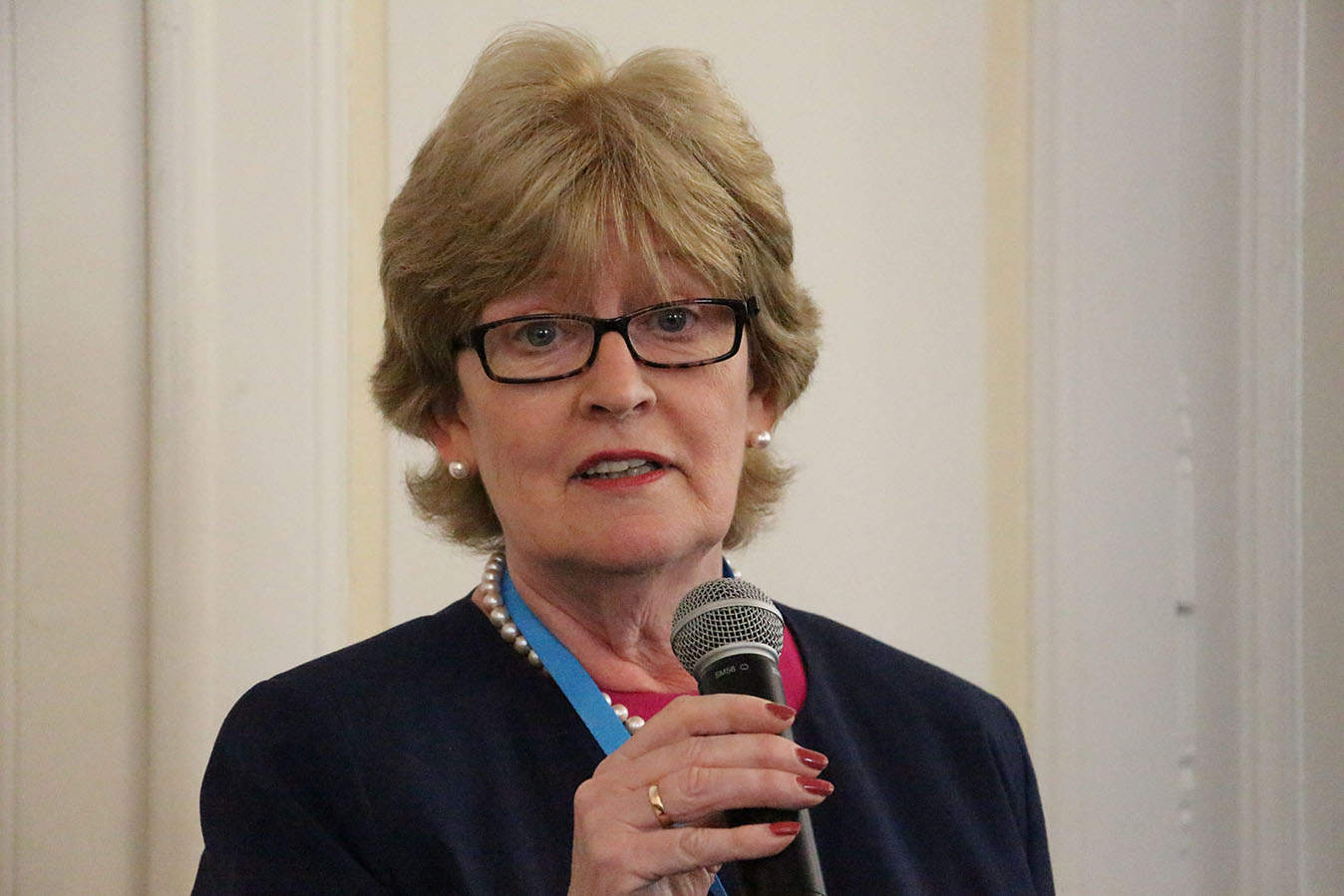The ANMF has developed an international network of affiliations to advance the interests of the professions and improve health outcomes globally. The ANMJ talks with President Annette Kennedy of the International Council of Nurses (ICN).
As President, what do you see as the ICN’s major roles?
As the global voice of nursing representing more than 20 million nurses worldwide, ICN opens channels of dialogue so that each nurse has a voice in the wider world of healthcare policy-making. Our goal is to raise that voice to lead, to inspire others to take on the challenge, to inform colleagues, governments, and the public how to leverage nursing knowledge and to celebrate the work that nurses do every day to advance global health agendas.
These are exciting times for ICN and the profession of nursing. The launch of the Nursing Now campaign means that nurses are speaking out on a global scale. The appointment of a Chief Nursing Officer at the World Health Organization (WHO), and ICN’s key work at the World Health Assembly and on other WHO Committees mean that we have representation at the highest decision-making tables for global health. The appointments of ICN Presidents, myself and Dr Judith Shamian, on key high-level Commissions mean that we have a direct line of influencing policy.
Our leadership programs have enabled many more nurses to develop the leadership skills they need to become influencers, and our projects have extended our capacity to deliver initiatives addressing the Sustainable Development Goals; provide global platforms for ICN to synergise with other organisations to deliver access to specialised knowledge and research on key nursing and health topics; and support programmatic activity on today’s critically important global health issues.

What are some of the main achievements of the ICN recently?
ICN and the nursing profession is represented on the WHO Independent Global High Level Commission on NCDs. The Commission aims to identify and propose bold and practical ways to curb the world’s leading causes of death and illness. The Commission has recommended actions to accelerate progress in tackling NCDs, primarily cardiovascular disease, cancers, diabetes and respiratory disease, and promoting mental health and wellbeing.
Our Nursing Policy team ensures we are present and vocal on many of the highest decision-making tables for health. As a member of the International Advisory Group on Primary Health Care for Universal Health Coverage we made a submission to the WHO public consultation on the draft declaration and released a joint statement, which called for an addition emphasising the critical role of nurses and midwives in delivery of PHC. We also endorsed the Civil Society Statement which called on governments to strengthen political leadership and governance; improve financing; enhance accountability; and advance country-led solutions.
ICN attended the Commonwealth of Independent States conference in October 2018. ICN made a joint statement with Nursing Now, calling on governments to remove barriers that impede nurses to work to their full scope to achieve the vision set out in the Astana Declaration. The statement emphasised that appropriate remuneration and financial resources should be in place to support the nursing workforce.
ICN’s status as a non-governmental organisation in official relations with WHO allows its staff and selected delegation to attend the World Health Assembly, the supreme decision-making body of WHO which is attended by delegations from all 194 member states. ICN makes statements on key agenda items and participates in several meetings and events throughout the course of the meeting.
Our renowned international Congress gives the opportunity for nurses around the world to meet, share knowledge and learn from experts in all topics affecting the profession.
Your watchword since election in 2017, is ‘together’. In what way is that playing out?
My first objective as President is to ensure that we work together in the best and most effective way possible. This involves ICN working together with our member organisations and with other stakeholders such as international organisations, governments, NGOs, and funders. It also involves nurses working with non-nurses to ensure our voice is heard at all levels.
One of my main objectives is to ensure ICN has more effective ways of communicating with our members so that we are meeting their needs.
ICN is working closely with WHO and was instrumental in ensuring the appointment of the WHO Chief Nurse. We are also working with the World Bank, the ICRC, the UN and many other leading organisations on different projects and policies, such as the Nursing Now campaign.
The Nursing Now campaign is set to change the way the nursing profession is viewed by communities, leaders and governments – and ICN believes that it will create a significant change to the view and value of our profession. ICN is hopeful that by 2020 the value of nurses and their vital contribution to healthcare will be much more widely recognised in all countries. Our aim is to get nursing organisations to work together for universal health coverage and better conditions for nurses, working with other professional groups to improve health care.
What are some of the current priorities of the ICN?
ICN has identified several key priority areas of work: universal health coverage; person-centred care; antimicrobial resistance; ageing; immunisation; human resources for health; mental health; non-communicable diseases; and sustainable development goals.
The future of nursing depends on all stakeholders recognising the full potential of our profession to determine the direction of healthcare acting upon our determination to lead through professional excellence at every level within global healthcare.
Investing in the nursing workforce: improved productivities within the health systems due to care coordination; improved access to care through enhanced scope of service; improved quality care and patient outcomes through safe staffing levels; and improved efficiency and reduced costs to the organisation.
This year, ICN has chosen to highlight through the 2019 International Nurses Day resources, how nurses all over the world are advocating for Health for All in the most challenging circumstances with limited resources, delivering healthcare to those most in need.
We are advancing the nursing profession through our Leadership for Change Programme which is an action-learning program to develop nurses as effective leaders and managers in a constantly changing health environment. The program is primarily aimed at developing countries’ capacity for strategic leadership and has been immensely successful in over 60 countries to date.
ICN also runs the Global Nursing Leadership Institute Programme. This ICN initiative was conceived in response to the changing needs of nurse leaders to support them in their efforts to shape and influence policy to meet growing global health challenges. ICN is planning to establish an alumni for graduates of the GNLI program to bring together senior nurses from all around the globe to influence nursing leadership policy.
What are some of the challenges for the professions ahead?
One major challenge is the unethical recruitment, and the retention of nurses, as well as excessive workload and unsafe conditions. The shortage of nurses, problems recruiting and retaining enough nursing staff, are among key issues facing all nations, with WHO predicting health services across the globe will need an extra nine million nurses and midwives by 2030.
Last year, ICN published a report analysing nurses’ pay which showed that many nurses around the world have experienced a real terms’ fall in their purchasing power over the past 10 years. We also published a report on nurse retention, which focused on identifying which policies are effective in keeping nurses in work and practice. The report identified the cost, productivity, care quality, and workload and working condition impacts of nurses leaving organisations and the profession; and provided an overview of the evidence base. It focused on developing a framework approach for policy interventions aimed at improving nurse retention.
We also concerned with nurse migration and have been active participants in several meetings on health workforce migration. We are working closely with WHO to develop the 2020 report on the State of the World’s Nursing.
Advanced Practice is a topic that will become increasingly important, as nurse practitioners and others are often the only professionals in remote or impoverished areas. ICN has a strong and active APN network and we are working towards a great event to be held in Halifax, Canada in 2020.
Getting civil society to understand the important roles that nurses’ play is essential. Nurses are the backbone of the health service, saving lives, and responsible for the decrease in morbidity and mortality. There is no doubt that there is an increasing need for educated competent nurses to play a critical role in improving the health of the population and achieving universal health coverage. Nurses are the invisible glue that holds the health service together, but we need to become visible, and more vocal.








